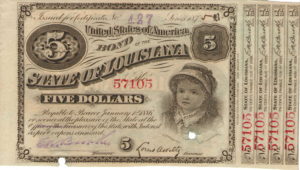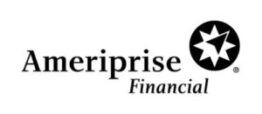
Titan Securities, of Addison Texas (CRD No. 131392), along with Brad C. Brooks, its hief compliance officer and president, and Richard Wayne Demetriou, a registered representative, were charged by Financial Industry Regulatory Authority (FINRA) Department of Enforcement in a Complaint alleging that Demetrio made misrepresentations to customers and failed to disclose an outside business activity; and Titan, via Brooks, failed to supervise Demetrio, failed to enforce supervisory procedures pertaining to customer communications, and made false representations to customers. Department of Enforcement v. Titan Securities, et al., No. 2013035345701 (Oct. 17, 2016).
According to the Complaint, between July of 2010 through October of 2010, at a time when Demetriou was registered with Titan Securities, he participated in an outside business activity which was undisclosed to his firm, where he facilitated and managed investments in a Mississippi based entity, RBCP, which was in the real estate investment business.
Particularly, Demetriou was alleged to have arranged for conference calls that involved the solicitation of the investment by representatives of RBCP; communicated rates of return and other details concerning the collateralization of the investment; discussed the management of RBCP; submitted illustrations to prospective customers, and advised customers accordingly.
The Complaint additionally stated that Demetriou did not disclose to Titan that he was involved with RBCP, and later misrepresented to Titan the degree to which he was involved with RBCP and the type of work he conducted. FINRA alleged that Demetriou’s failure to disclose his outside business activity to his firm was conduct violative of FINRA Rule 2010 and NASD Rule 3030.
Apparently, Demetriou promoted RBCP investments to prospective investors, many of whom were customers at Demetriou’s prior employer, Private Consulting Group, Inc., and who previously suffered significant financial losses based upon pursuing Demetriou’s investment recommendations. The Complaint alleged that Demetriou told customers that making investments in RBCP would allow them to make up for investment losses which had been previously incurred through investments sponsored in Demetriou’s prior firm, PCG.
In the course of promoting RBCP, Demetriou seemingly made several misrepresentations concerning RBCP, and failed to conduct an investigation pertaining to information which he had been provided through RBCP’s representatives. The Complaint indicated that RBCP’s financial statements and other promotional literature, which Demetriou transmitted to thirty-six customers including Titan Securities customers, was plagued with inaccuracies, such that it did not allow for customers to conduct a proper evaluation of the investment.
For example, prospective investors were reportedly told by Demetriou in a July 6, 2010 e-mail that an investment of $1,500.00 in RBCP could purchase preferred shares valued at $100,000.00, and that such shares would provide investors with a four percent dividend; that a $4,500.00 investment in RBCP could enable customers to receive a $300,000.00 return on their principal investment – with $60,000.00 returned in the first year.
The Complaint stated that RBCP investors lost all monies associated with their investment. FINRA alleged that Demetriou’s misrepresentations made to investors was conduct violative of FINRA Rule 2010. Additionally, FINRA alleged that Demetriou’s failure to obtain approval from Titan concerning the information prior to dissemination to customers was conduct violative of FINRA Rules 2010 and 2210(b) and 2210(d), as well as NASD Conduct Rule 2210(b) and 2210(d).
According to the Complaint, the firm, by way of Brooks’ conduct in his capacity of the firm’s chief compliance officer and president, did not properly supervise Demetriou’s actions with respect to RBCP, even though Brooks had knowledge concerning Demetriou’s participation in RBCP and the risks associated with such investment. FINRA found that the firm and Titan Securities violated FINRA Rules 2010, 3270, and NASD Rule 3010(a) in this regard.
Further, the Complaint reported that between April of 2011 through April of 2013, Titan Securities, by way of Brooks’ position with the firm, did not properly create and implement supervisory systems and protocols which were reasonable pertaining to correspondence sent to customers regarding investments. FINRA claimed that the supervisory mishaps in this regard caused the firm and Brooks to be incapable of obtaining, reviewing, and maintaining such correspondence for several of the firm’s registered representatives.
The firm seemingly also failed to enforce the firm’s prohibition on registered representatives’ utilization of personal e-mail to correspond with customers concerning securities, which FINRA alleged was conduct violative of Securities Exchange Act of 1934 Section 17, Rule 17a-4, FINRA Rules 2010 and 4511, and NASD Rules 3010 and 3110.
FINRA further alleged in the Complaint that Brooks and Titan made false representations to customers within a private placement memorandum, in violation of Sec Rule 10b-9. Particularly, the firm and Brooks falsely stated that purchases of units by a limited partnership’s general partner in an offering would not be included in the offering’s minimum contingency amount calculations. Additionally, prior to the minimum offering amount being accumulated from investors, the firm and Brooks reportedly released customers’ funds held within the offering’s escrow account. FINRA alleged the firm and Brooks violated SEC Rule 15c2-4 in this regard.
Finally, funds belonging to investors were reportedly released prematurely from the offering’s escrow accounts, despite a private placement memorandum representation that funds would be returned promptly to investors in the event that the minimum amount was not accumulated within the offering timeframe. FINRA alleged that the firm and Brooks had violated Securities Exchange Act of 1934 Section 10(b) and 15(c), as well as SEC Rules 15c2-4 and 10b-9, and FINRA Rules 2010.
FINRA Public Disclosure reveals that Richard Demetriou has been subject to four incidents concerning misconduct. On July 29, 2008, he settled a customer initiated investment related arbitration claim for $50,000.00 based upon allegations that Demetriou, while working with Private Consulting Group, engaged in wrongful conduct pertaining to his recommendation of an investment in ClassicStar, which turned out to be a scam. On July 14, 2014, Demetriou settled a customer initiated investment related arbitration claim for $120,000.00 based upon allegations that he effected unsuitable investment transactions.
FINRA Public Disclosure reveals that Brad Brooks has been subject to six incidents concerning misconduct. Particularly, on June 8, 1992, a customer was awarded $33,225.00 in damages per an investment related arbitration action, based on allegations that Brooks mismanaged a customer’s investment account and effected unauthorized trades.
On January 25, 1994, Brooks settled a customer initiated investment related arbitration claim for $10,000.00 in damages based upon allegations that Brooks effected unauthorized transactions in the customer’s account, and was responsible for the customer’s poor investment performance. On December 22, 1997, a customer was awarded $87,229.36 in damages against Brooks per a customer initiated investment related arbitration action, based upon allegations that Brooks failed to supervise the unauthorized trading of a registered representative, Leonard Vaugh Mauck.
On August 3, 1998, Brooks settled a customer initiated investment related arbitration claim for $10,000.00 based upon allegations that Brooks effected an unsuitable investment transaction in the customer’s account regarding common stock in Casino Data Systems.
On May 22, 2009, Brooks was censured and fined $12,500.00 by FINRA after consenting to findings that Brooks, on behalf of Titan securities, failed to make sure that funds obtained from investors were appropriately deposited into escrow accounts associated with a private placement offering; funds belonging to investors were released prematurely from the offering’s escrow accounts, making a private placement memorandum representation – which called for prompt return of investor funds if minimum amounts were not raised in the offering timeframe – to be deemed false. Brooks was found to have violated Securities Exchange Act of 1934 Section 10(b), Rule 10b-9, as well as NASD Conduct Rules 3010 and 2010.
The information contained herein has been obtained from reliable sources however may not be accurate and is not guaranteed by us. Readers are encouraged to undertake their own independent investigation and evaluation of the relevant facts. All claims and allegations are subject to adjudication, decisions may be subject to appeal, and no inference is intended, nor should any inference be made from any information contained herein from any source.
This posting and the information on our website is for general information purposes only. This content should be not considered legal advice, and any responses, comments, e-mails, other communications do not form any attorney client relationship. Attorney Advertisement. See Important Disclaimer
Guiliano Law Group
Our practice is limited to the representation of investors. We accept representation on a contingent fee basis, meaning there is no cost to you unless we make a recovery for you. There is never any charge for a consultation or an evaluation of your claim. For more information, contact us at (877) SEC-ATTY.
For more information concerning common claims against stockbrokers and investment professionals, please visit us at securitiesarbitrations.com
To learn more about FINRA Securities Arbitration, and the legal process, please visit us at securitiesarbitrations.com








